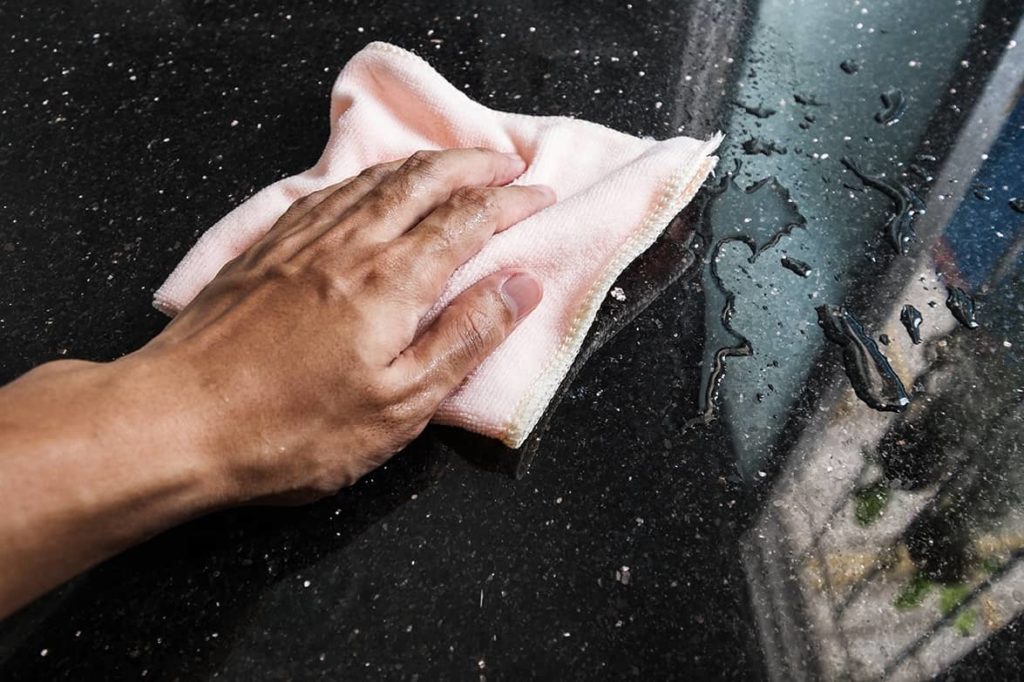Granite is a strong, durable and moisture-resistant natural stone. When used for countertops, it can provide a sturdy, long-lasting and beautiful addition to any kitchen. But in order to maintain its beauty and function, it should be sealed on a regular basis. Check out these reasons why sealing your granite countertops can preserve their beauty for many years to come.
Why Seal Granite?
Like many natural stones, granite is porous. You should consider sealing your granite at least every year, perhaps more frequently if your countertop gets a lot of heavy use. This will prevent staining from oils, water and other liquids. When your granite countertop is correctly sealed, oils and liquids will bead up on top instead of seep into the stone. Grease, grape juice and wine can all stain granite.
Another benefit of sealing granite is that it will prevent etching that can be caused by cleaners or acidic foods like lemon juice.
Benefits of Sealing Granite Countertops
After your granite countertops have been sealed, they are easier to clean and maintain. Plus, you won’t need to rely on as many chemicals to get them clean. You’ll also have a more hygienic surface. Because granite is porous, it can harbor bacteria. When you seal your countertops, this reduces the prevalence of cracks and crevices where bacteria can thrive.
Refrain from using products that contain bleach, ammonia or acids when cleaning granite. Instead, stick with mild soap and water and approved granite countertop cleaning liquids.
Not all pieces of a granite slab will have equal porosity. This means you may have to seal some parts more frequently than every year.
How do you know it’s time to apply sealant? Dribble some water on your countertop; if it beads, you’re good for now…if it soaks in, it’s time to seal it.
How to Seal a Granite Countertop
Sealing a granite countertop is easy and takes just about 20 minutes depending on how much countertop you have. Here are some easy steps:
- Take everything off your countertop, from small appliances to sugar canisters.
- Clean off the counter with a cloth.
- Let the surface dry before you start the sealing process.
- Put on some gloves, then spray the sealer in a uniform and generous manner on the countertop, ensuring all surfaces have been thoroughly covered.
- Wipe off the excess after about 15 minutes.
- If you notice any hazy spotting, spray some sealant on the cloth and wipe those spots until they disappear.
- The countertops should be sealed within 24 hours.
If you’re having trouble remembering when it’s time to test for sealant, set an alert on your phone. For high-traffic areas, seal every six months. For areas that get less traffic, shoot for once yearly. However, some granite countertops don’t have to be sealed for up to five years. This will depend on the color and porosity of the granite you have, as well as the quality of the sealer. Ask your installer how often you should seal your granite countertop, then stick to that schedule for the best results.
Contact Granite Guy
For more information on installing and sealing granite countertops, contact us at 508-460-7900.

